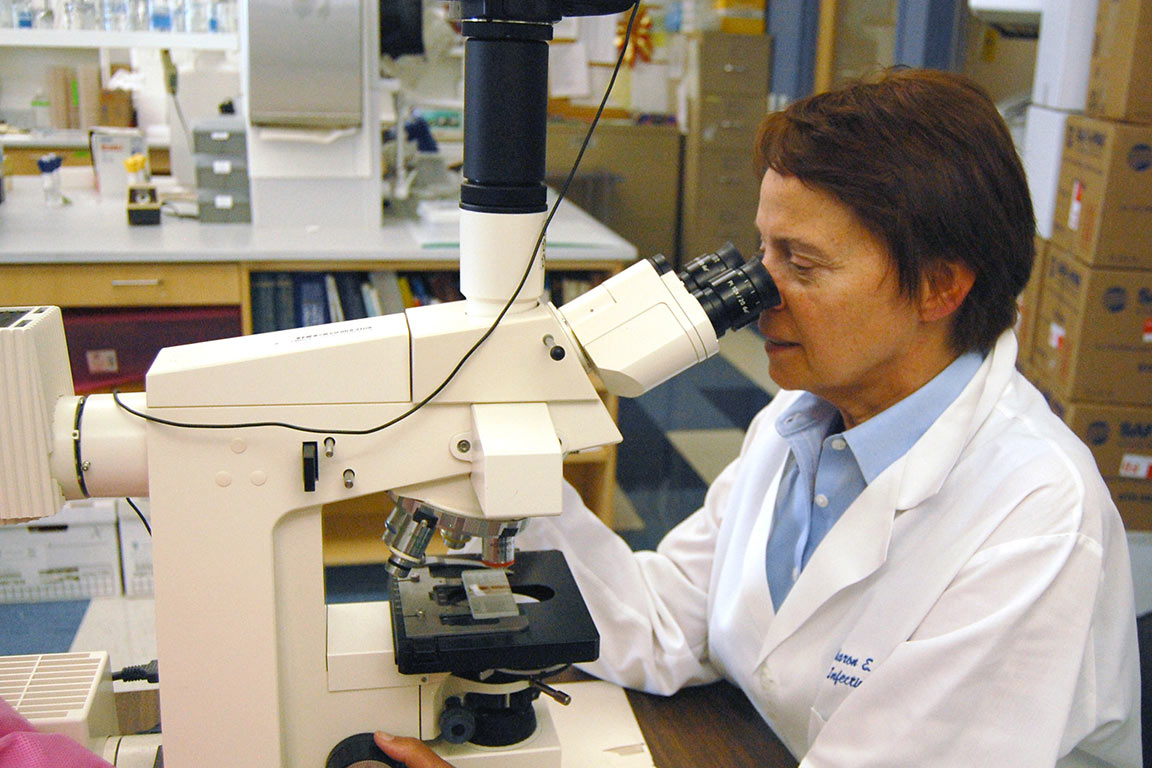SLU Launches NIH-Funded Bird Flu Study
Saint Louis University continues the push to develop a vaccine for avian flu, amid concerns that the viruses could mutate to cause a potential pandemic.
Funded by the National Institutes of Health, the research is part of the federal government’s pandemic preparedness strategy.
Avian influenza from the H7N9 strain began circulating in China in 2013, mostly infecting people when they interacted with live poultry that had the virus. By late 2016, a “fifth wave” of outbreaks was identified in China, and as of September 2018 a total of 1,567 cases have been reported to the WHO.
“The U.S. government has determined the H7N9 influenza virus has potential to cause a pandemic. Our vaccine research will help determine the federal strategy in protecting public health in case this new strain of flu virus is widely spread among people,” said Sharon Frey, M.D., clinical director of SLU’s Center for Vaccine Development and principal investigator.
The study will test an investigational H7N9 vaccine provided by the Biomedical Advanced Research and Development Authority, within the Department of Health and Human Services, to see if it triggers an immune response that prompts the body to make antibodies to fight infection. Researchers also will gather information to see if the vaccine candidate is safe and well tolerated.
The investigational vaccine is made from an inactivated flu virus, which cannot give a person influenza.
Saint Louis University is the lead site for the research, and aims to recruit up to 80 healthy volunteers between 18 and 64 to participate for the Phase 2 clinical study. SLU is a Vaccine and Treatment Evaluation Unit (VTEU), part of a network of clinical research sites in the United states that are supported by the National Institute of Allergy and Infectious Diseases (NIAID), part of the National Institutes of Health. As many as 371 volunteers from seven sites that are NIAID VTEUs or subcontracting facilities will participate in the research.
Volunteers will receive two doses of the H7N9 study vaccine with or without an adjuvant, which is an agent that helps activate the immune system. The study will last up to 13 months, and includes as many as seven clinic visits and five phone calls. As compensation for their time, study volunteers will receive $75 a visit.
The U.S. government has determined that pandemic preparedness is a high public health priority. Pandemics occur because people lack immunity to a highly contagious novel flu virus from animals, which rapidly spreads through a defenseless population, causing illness and death.
Four pandemics have occurred during the last century, the most recent of which was the H1N1 pandemic in 2009 where the influenza virus in pigs mutated to spread to human.
“We do not know when an influenza virus strain will change enough to cause a pandemic, which is why the federal government wants to be prepared,” Frey said.
“A major cornerstone of protecting public health during an influenza pandemic is our ability to rapidly produce and deliver safe and effective strain-specific vaccines, which is why we are conducting this research.”
SLU is eligible to conduct the research because its Vaccine and Treatment Evaluation Unit is one of nine institutions selected in 2013 by the National Institutes of Health to help develop and evaluate vaccines of the future that will protect people from infectious diseases and emerging threats. The project is funded under Contract No. HHSN272201300021I. The federal government has funded vaccine research at SLU since 1989.
To learn more about vaccine research being conducted at Saint Louis University, call 314-977-6333 or email vaccine@slu.edu. For more information on this study, please visit the ClinicalTrials.gov website.
Established in 1836, Saint Louis University School of Medicine has the distinction of awarding the first medical degree west of the Mississippi River. The school educates physicians and biomedical scientists, conducts medical research, and provides health care on a local, national and international level. Research at the school seeks new cures and treatments in five key areas: infectious disease, liver disease, cancer, heart/lung disease, and aging and brain disorders.


















